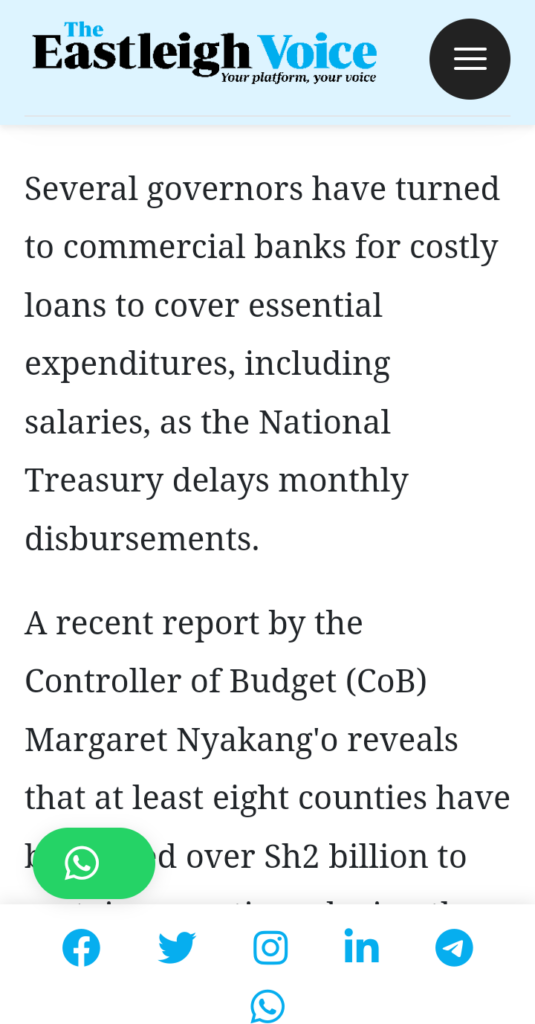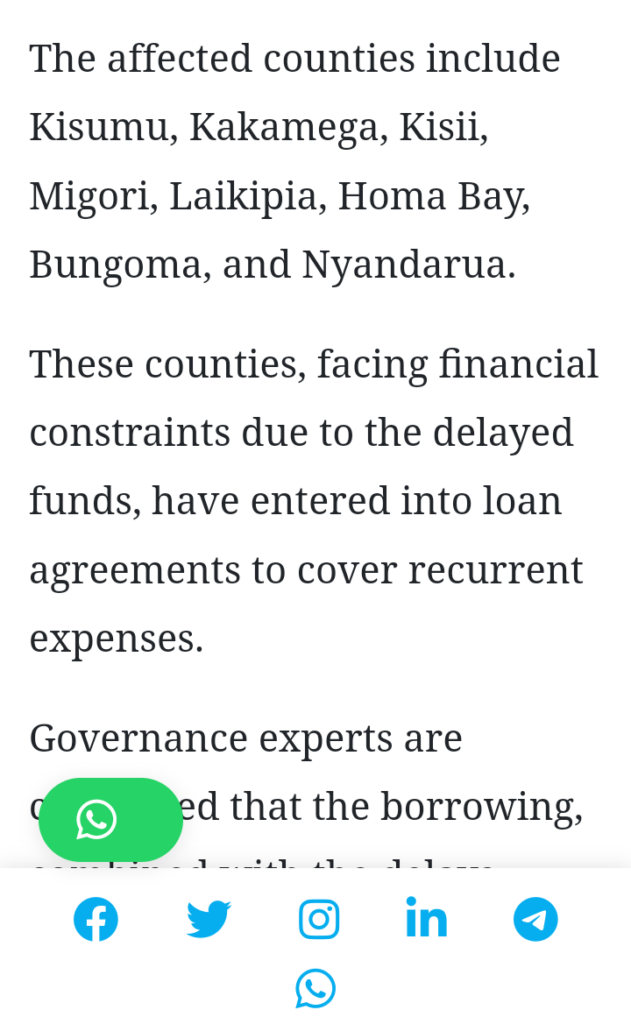Several governors have resorted to taking costly loans from commercial banks to address financial shortfalls caused by delayed disbursements from the National Treasury.
These delays have forced counties to borrow over Sh2 billion in just the first quarter of the Financial Year 2024-2025, according to a report by Controller of Budget Margaret Nyakang’o.The affected counties include Kisumu, Kakamega, Kisii, Migori, Laikipia, Homa Bay, Bungoma, and Nyandarua.
The borrowed funds are primarily being used to cover recurrent expenses such as salaries, which highlights the severity of the financial strain faced by county governments.
Critics argue that these stopgap measures are unsustainable and could worsen the financial position of counties already grappling with poor fiscal management.

In Homa Bay County, Governor Gladys Wanga’s administration borrowed Sh473.69 million from KCB Bank and Equity Bank to facilitate salary payments.
KCB charged a 0.5% interest rate, while Equity Bank charged 1%.
Despite these loans, the full amount remains unpaid as of September 30, 2024.
Bungoma County, under Governor Ken Lusaka, borrowed Sh595.12 million from KCB Bank, with Sh509.28 million allocated for the executive and Sh85.84 million for the county assembly.
The debt remains outstanding, raising questions about the county’s ability to meet its financial obligations.
Kisumu County, led by Governor Peter Anyang’ Nyong’o, borrowed Sh449.50 million from KCB to cover salary payments.
Like other counties, the amount remains unpaid, highlighting the mounting debt crisis. In Kisii County, Governor Simba Arati’s administration borrowed Sh256.27 million from Family Bank in July 2024 to pay salaries for both the executive and county assembly members.

Meanwhile, Migori County Assembly secured a Sh50 million overdraft from KCB at an interest rate of 3% to settle allowances for members and staff, but this too remains unpaid.
Laikipia County’s executive avoided borrowing, but the county assembly took a Sh24 million loan from Family Bank.
Nyandarua County signed an MoU with Tower Sacco to manage salary delays, while Kakamega County, though it did not borrow directly, entered into renewable agreements with banks to cover recurrent expenses during cash flow shortfalls.
Governance experts warn that this growing reliance on loans is not a viable solution and could severely impact counties’ ability to fund development projects.
With Treasury disbursements still delayed, counties are increasingly relying on debt to maintain basic operations, putting their long-term financial stability at risk.
The situation paints a bleak picture of devolved governance, where essential services and development are being sacrificed to cover administrative expenses.


